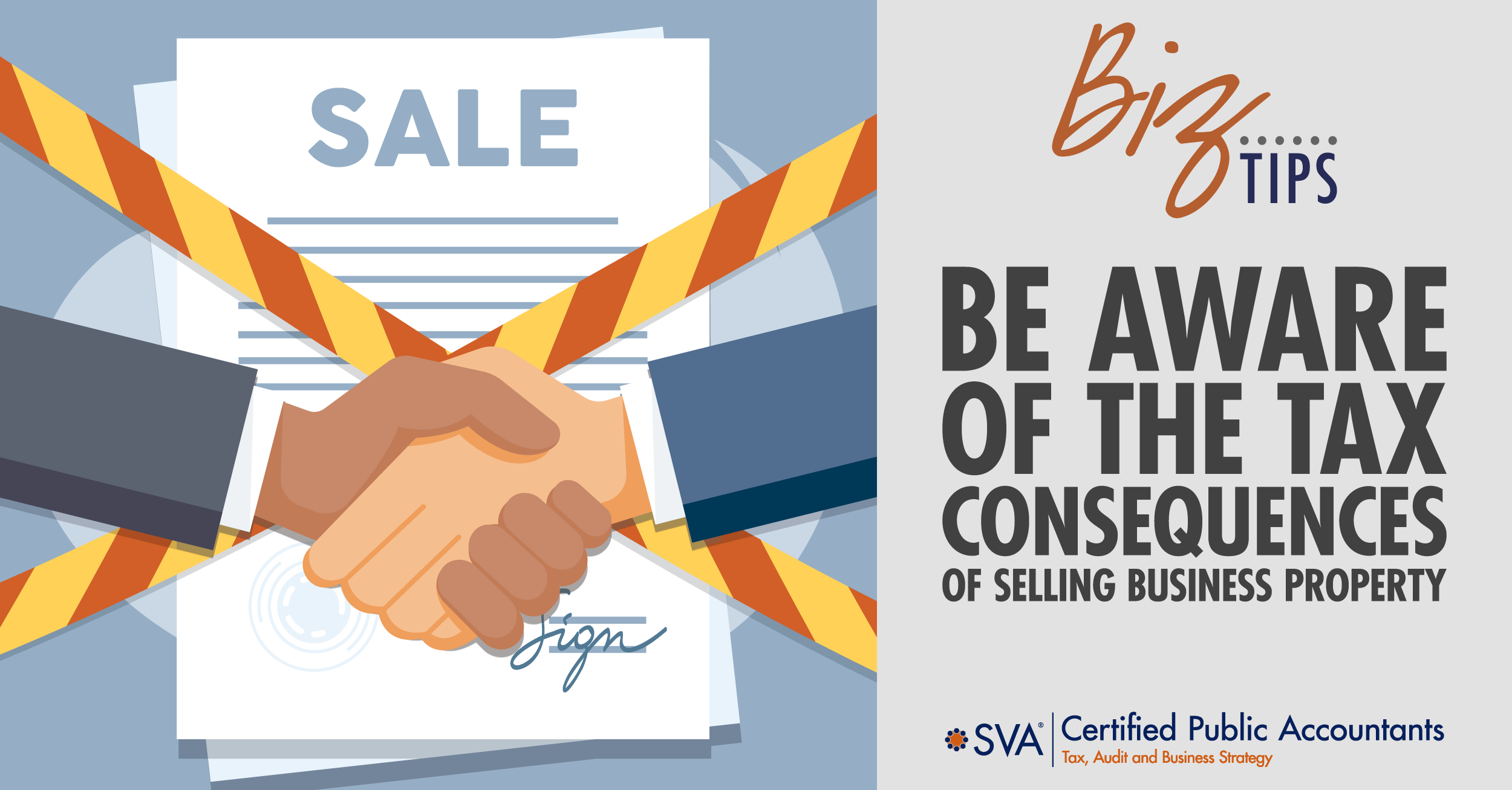If you’re selling property used in your trade or business, you should understand the tax implications. There are many complex rules that can potentially apply.
To simplify this discussion, let’s assume that the property you want to sell is land or depreciable property used in your business, and has been held by you for more than a year.
Note: There are different rules for property held primarily for sale to customers in the ordinary course of business, intellectual property, low-income housing, property that involves farming or livestock, and other types of property.
Basic Rules
Under tax law, your gains and losses from sales of business property are netted against each other. The tax treatment is as follows:
- If the netting of gains and losses results in a net gain, then long-term capital gain treatment results, subject to “recapture” rules discussed below. Long-term capital gain treatment is generally more favorable than ordinary income treatment.
- If the netting of gains and losses results in a net loss, that loss is fully deductible against ordinary income. (In other words, none of the rules that limit the deductibility of capital losses apply.)
The availability of long-term capital gain treatment for business property net gain is limited by “recapture” rules. Under these rules, amounts are treated as ordinary income, rather than capital gain, because of previous ordinary loss or deduction treatment.
There’s a special recapture rule that applies only to business property. Under this rule, to the extent you’ve had a business property net loss within the previous five years, any business property net gain is treated as ordinary income instead of long-term capital gain.
(Download Video Transcript)
Different Types of Property
Under the Internal Revenue Code, different provisions address different types of property. For example:
Section 1245 Property
This consists of all depreciable personal property, whether tangible or intangible, and certain depreciable real property (usually real property that performs specific functions). If you sell Section 1245 property, you must recapture your gain as ordinary income to the extent of your earlier depreciation deductions on the asset.
Section 1250 Property
In general, this consists of buildings and their structural components. If you sell Section 1250 property that’s placed in service after 1986, none of the long-term capital gain attributable to depreciation deductions will be subject to depreciation recapture.
However, for most noncorporate taxpayers, the gain attributable to depreciation deductions, to the extent it doesn’t exceed business property net gain, will (as reduced by the business property recapture rule above) be taxed at a rate of no more than 28.8% (25% plus the 3.8% net investment income tax) rather than the maximum 23.8% rate (20% plus the 3.8% net investment income tax) that generally applies to long-term capital gains of noncorporate taxpayers.
Other rules apply to, respectively, Section 1250 property that you placed in service before 1987 but after 1980 and Section 1250 property that you placed in service before 1981.
As you can see, even with the simple assumptions in this article, the tax treatment of the sale of business assets can be complex. Contact us if you’d like to determine the tax implications of transactions, or if you have any additional questions.
© 2024

